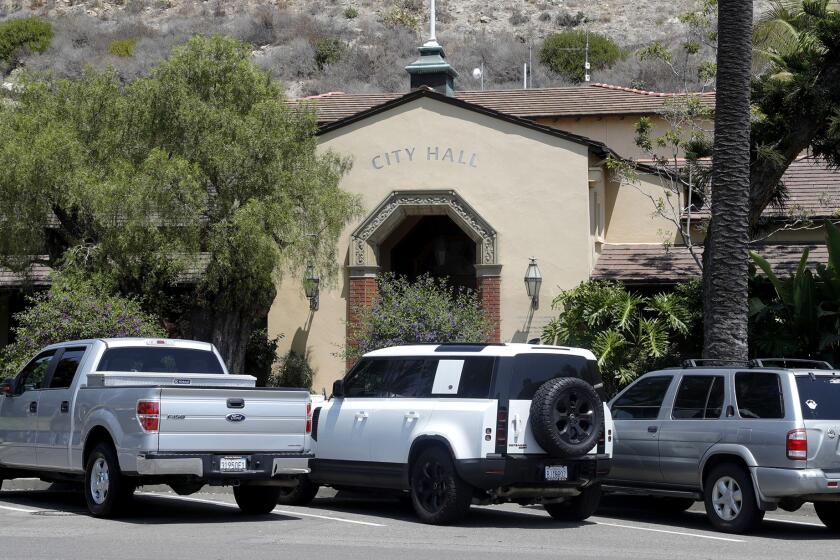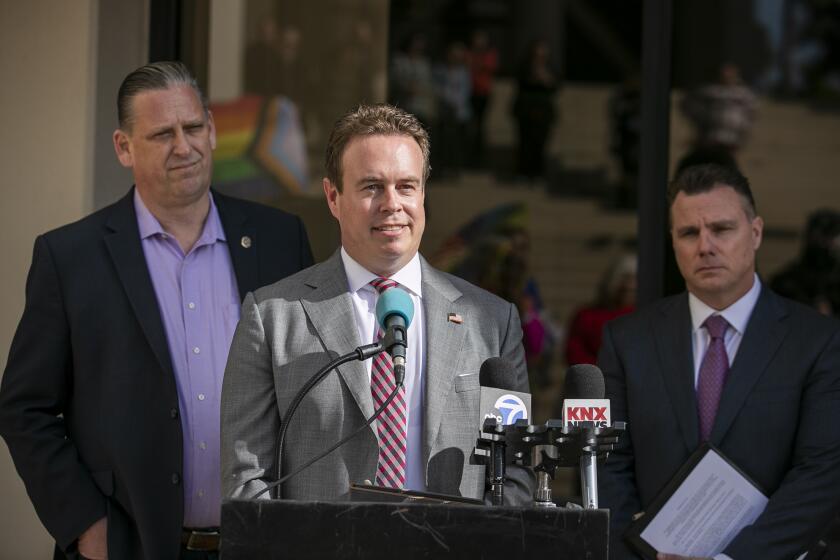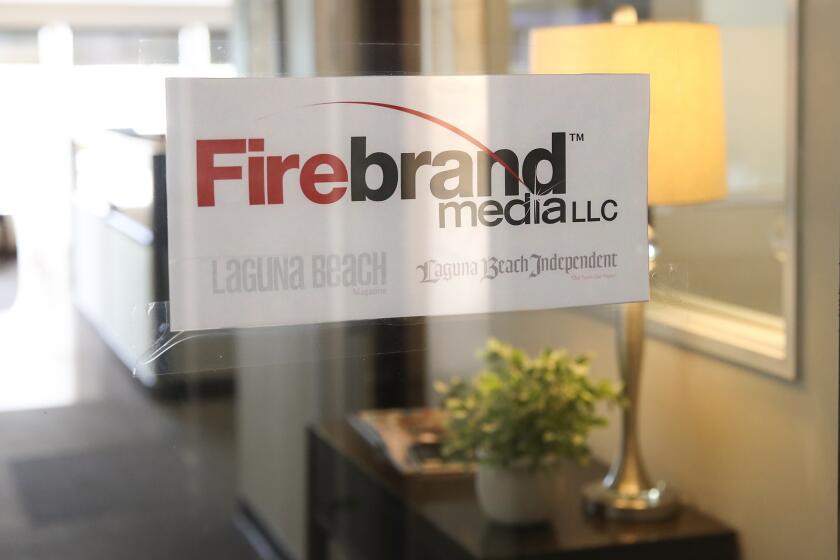Huntington Beach voters consider three charter amendment measures
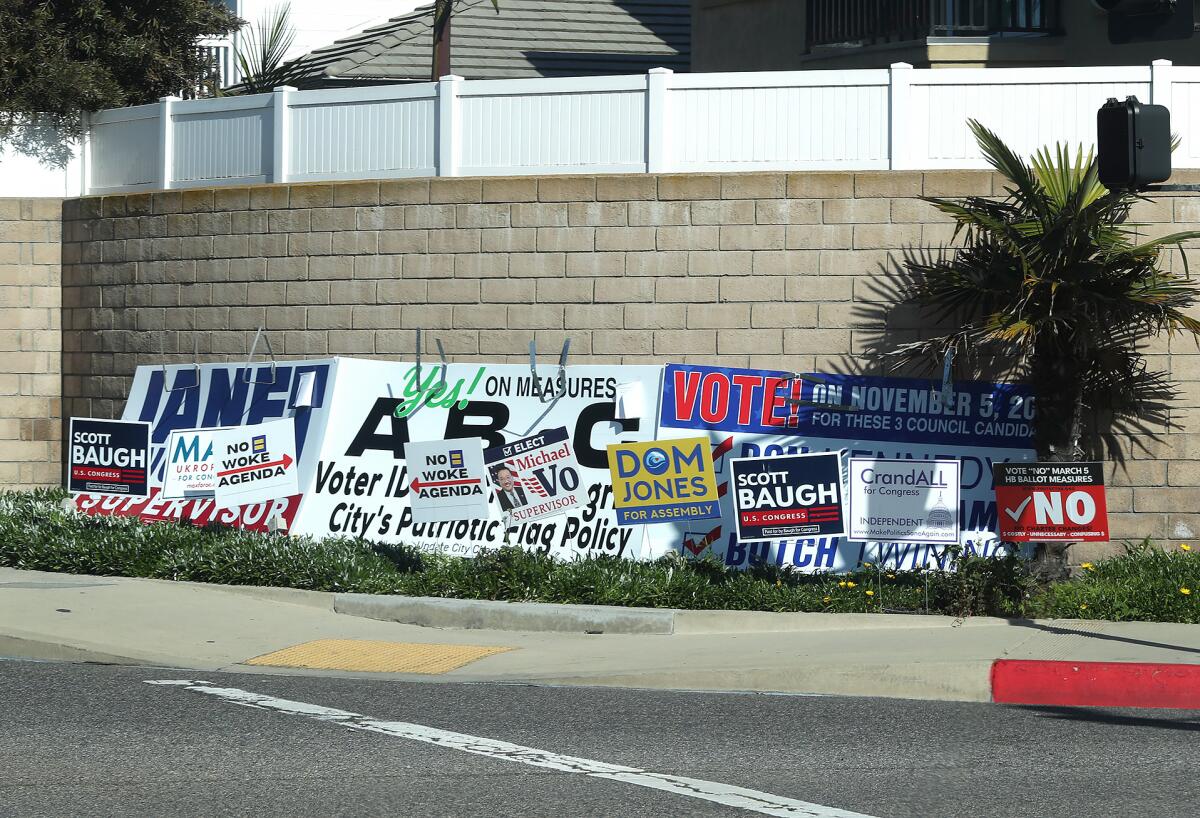
Huntington Beach could require voter identification to cast a ballot in person, as part of larger changes the city would undergo to run its own municipal elections.
The idea has been discussed plenty in recent months. Now it’s in the hands of Surf City voters.
These are core issues of Measure A, one of three city charter amendment measures on the ballot for Huntington Beach voters to consider in the primary election.
Though Election Day is March 5, the Orange County Registrar of Voters sent ballots out to registered voters last week, giving residents the opportunity to vote by mail. The first in-person vote centers open on Feb. 24.
Measure B seeks to codify into the charter the city’s flag ordinance, approved by the conservative City Council about a year ago, that limits the flying of flags on city property to government flags, as well as the POW/MIA flag and the six flags of the U.S. military. Measure B also would require unanimous City Council approval to fly new flags, including the LGBTQ+ Pride flag, which is currently not allowed to fly on city property.
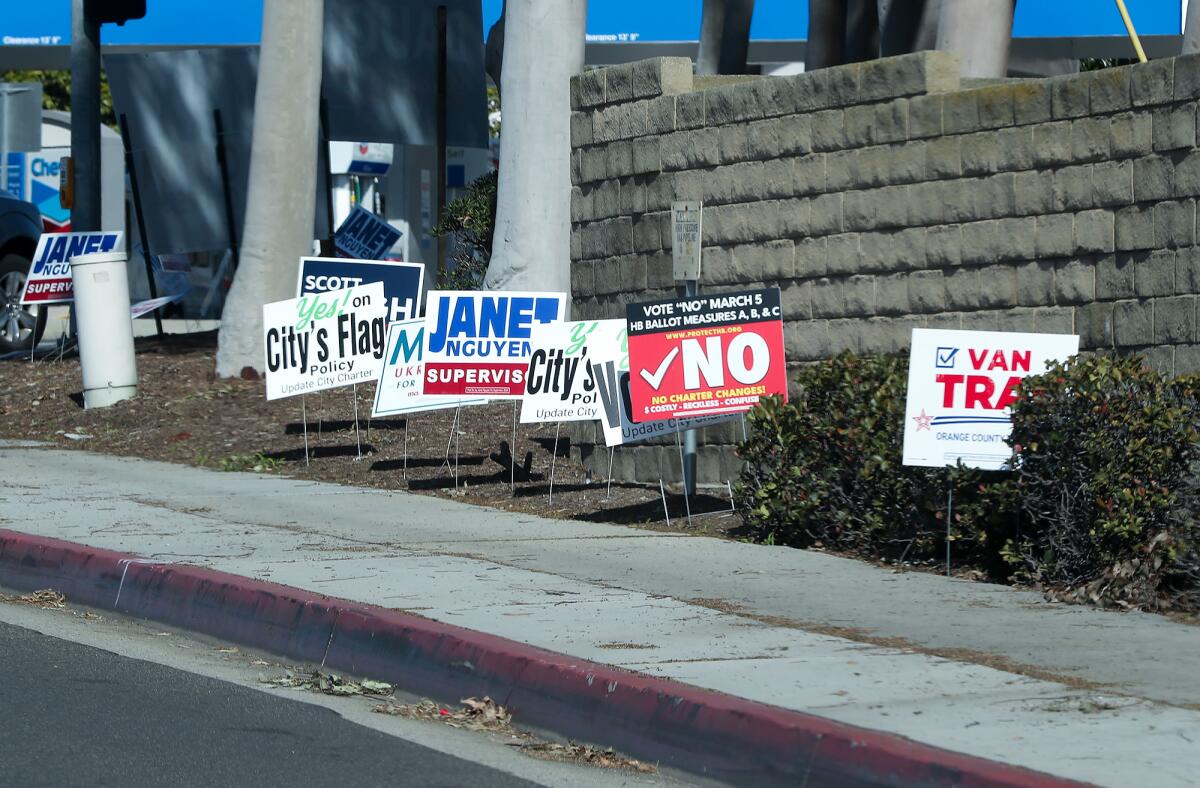
Measure C would move the city to a two-year budget cycle, update the processes to fill a council vacancy and to cancel meetings. If approved, the mayor would be allowed to unilaterally cancel a meeting.
Measure A’s language is such that the city “may” implement the changes starting with 2026 municipal elections, not that it definitely would. Along with voter ID, the new elections changes would also include up to 20 ADA-compliant voting locations, as well as city-monitored drop boxes.
Measure A backers, including Huntington Beach Mayor Gracey Van Der Mark and Councilman Tony Strickland, say that it brings additional faith in election results.
“California’s Constitution gives charter cities like Huntington Beach the power to govern how local elections are conducted,” Van Der Mark and Strickland wrote in their argument in favor. “Enshrining these simple steps into our City Charter would forever protect Huntington Beach’s elections. There are no excuses for failing to protect our votes.”
Proponents have often stated that identification is required for a number of daily tasks, so why not showing up at a polling place to vote?
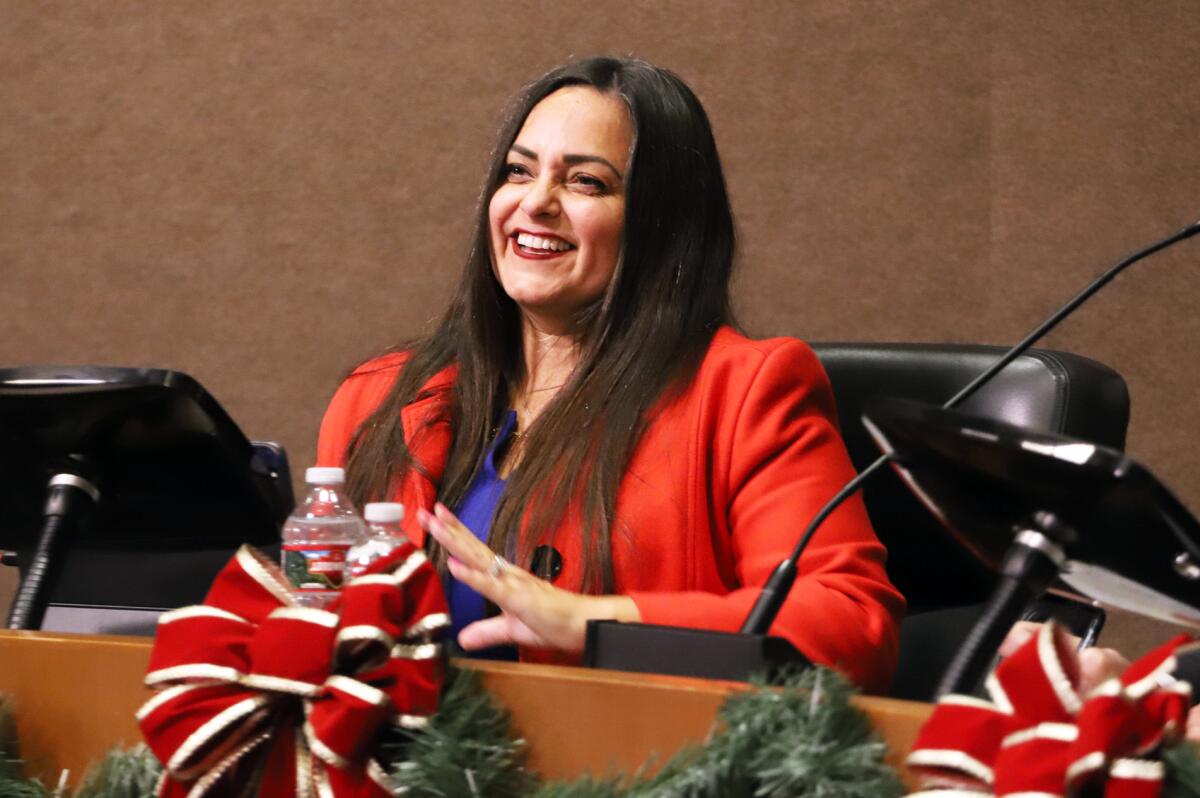
But council members Dan Kalmick, Natalie Moser and Rhonda Bolton, in the written argument against Measure A, say the larger change is costly and unneeded — with no evidence of voter fraud in Huntington Beach.
“Our city is unprepared for this shift,” they wrote. “The Orange County Registrar of Voters implied Huntington Beach may have to manage its own separate elections. With no prior experience, this could become a logistical nightmare.”
Sunny Han, Huntington Beach’s chief financial officer, has estimated that the cost to hold an election could range from $1.3 million to $1.65 million, not including costs for cybersecurity or ballot tracking.
Sacramento is watching, too. In September, California Atty. General Rob Bonta and Secretary of State Shirley Weber sent a letter warning Huntington Beach that requiring voter ID in municipal elections violates state law.
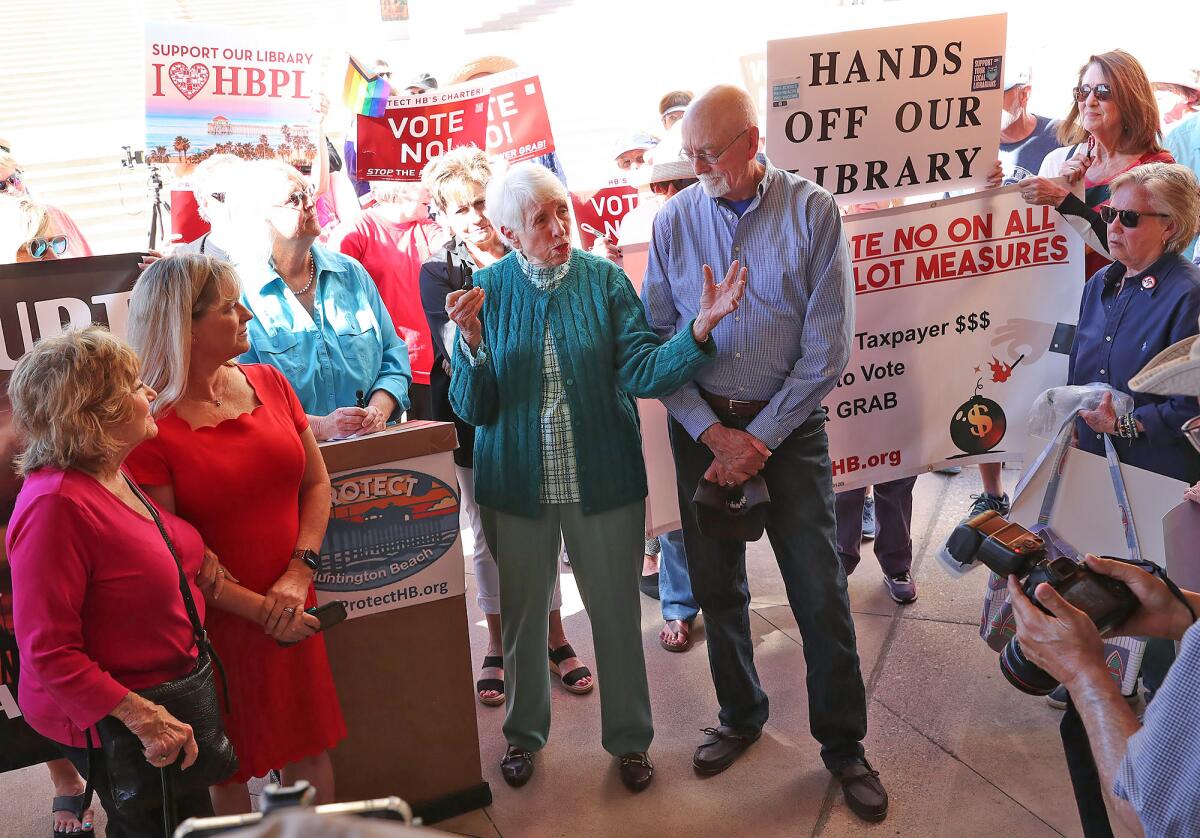
Protect Huntington Beach, a political group featuring several former members of the City Council, is asking voters to vote ‘no’ on all three measures.
“A vote for [Measure] A is a vote for a lawsuit against the city by the state,” former Mayor Connie Boardman said. “The City Council is unable to tell us how much this will cost taxpayers. Why would we vote for this if we don’t know how much this will cost the city?”
Each measure requires a simple majority to pass. According to data reported Wednesday at ocvote.gov, 132,912 registered voters live in Huntington Beach. Of those, 53,841 are Republicans and 41,502 are Democrats. Nearly 28,000 voters are registered with no party preference and the balance is split between five other categories.
The Huntington Beach city charter has not been changed since 2010. Three charter amendments that were on the ballot in November 2022 — Measures L, M and N — were each rejected by voters.
All the latest on Orange County from Orange County.
Get our free TimesOC newsletter.
You may occasionally receive promotional content from the Daily Pilot.

